Details of selected EDI research projects at the UCL Institute of Archaeology are highlighted here.
Memorialising Ancestral Landscapes in the Brazilian Northwest Amazon (PARINÃ)
This interdisciplinary British Academy-funded project, led at UCL by Manuel Arroyo-Kalin, channels archaeological, anthropological, and historical approaches to reconstruct Indigenous History in the Northwest Amazon, a region that is well-known ethnographically as the home of a vast multi-ethnic and multi-linguistic indigenous population.
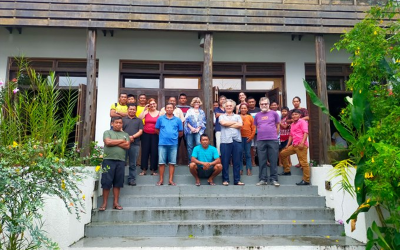 Participants of the May 2022 intercultural Heritage Making workshop at São Gabriel da Cachoeira | 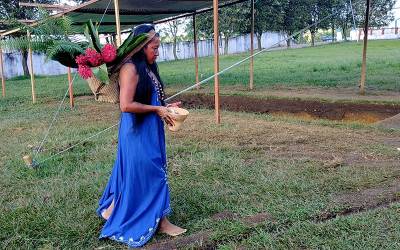 Artistic performance by indigenous artist /writer Rosi Waikhon at SGC-Diocese, May 2022 (excavation in the background) |
Project partners/ collaborating institutions and communities include: UCL Institute of Archaeology, São Carlos Federal University (UFSCar), Museu da Amazônia (MUSA), Museu Goeldi (MPEG), Instituto Socioambiental (ISA), PARINÃ Stipendiary Indigenous researchers and invited indigenous connoisseurs.
Keywords: Amazonian archaeology, indigenous history, intercultural research, participatory research
The Dawn of Everything: A New History of Humanity
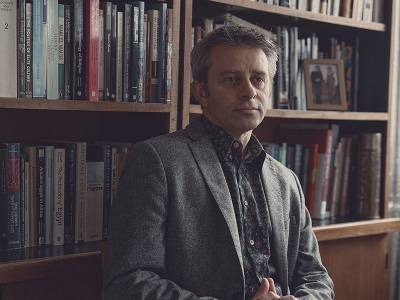 Prof David Wengrow, photographed at the UCL Institute of Archaeology by Tim Jamieson | 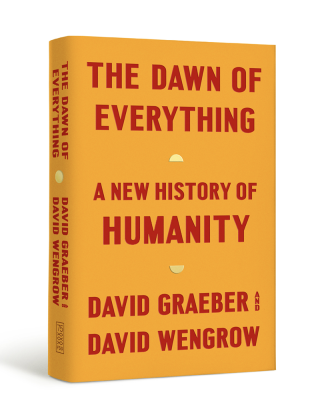 The Dawn of Everything (Penguin, 2021) bookcover |
The Dawn of Everything, co-authored by David Wengrow and the late David Graeber, and published in 2021, explores the impact of Indigenous critiques upon European modes political thought during the Age of Enlightenment, and how this necessitates a wider rethinking of global history.
The thrust of this work is to challenge Eurocentric frameworks of analysis in the social and historical sciences (e.g. relating to the origins of social inequality, the nature of democracy and the state, and the rise of “the West”), and to explore how history is self-consciously produced by people whose capacity to do this has been denied on racist grounds.
The volume appeared on the New York Times bestseller list and was shortlisted for The Orwell Prize for Political Writing 2022.
Big Picnic: Big Questions - engaging the public with Responsible Research and Innovation on Food Security
The EC-funded BigPicnic project which ran from 2016-19 and was co-led at UCL by Theano Moussouri, with 22 international partners including the Royal Botanic Garden Edinburgh and Botanic Gardens Conservation, explored food security issues in the context of botanic garden education by linking food security, climate change and plant diversity, shaping debate and public policy
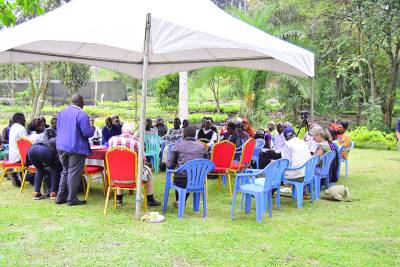 Co-creation session run jointly by farmers' groups and the Tooro Botanic Garden, Tooro, Uganda |
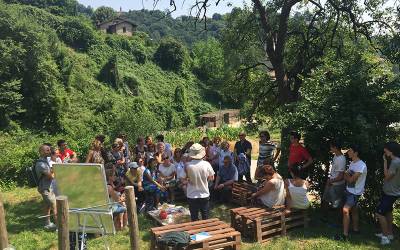 Science Cafe at Bergamo Botanic Garden, Bergamo, Italy |
Through collaboration and discussion, BigPicnic helped the public to better understand food security issues and allowed attendees at project events to express opinions on a potentially sensitive topic in a supportive environment, empowering citizens to see themselves as co-creators of sustainable food futures.
Keywords: Food security, food system, food heritage, intangible cultural heritage, food justice, sustainable transitions of the food system, participatory action research, co-creation of knowledge, Responsible Research and Innovation (RRI)
Egypt's Dispersed Heritage
From the 1880s to the 1980s hundreds of excavations were carried out across Egypt by British organisations. While many of the objects they discovered remained in Egypt, a large proportion were distributed to around 350 museums in 27 countries across the world.
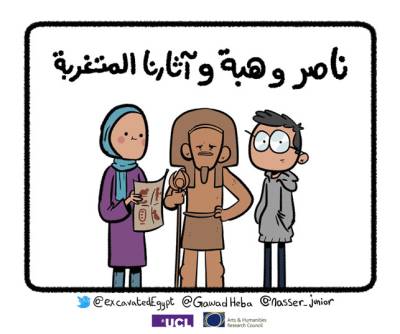 Comic series produced in 2020 ‘Nasser, Heba and our dispersed heritage’, drawn by Nasser Junior and co-conceived with UCL project research Heba Abd el Gawad. | 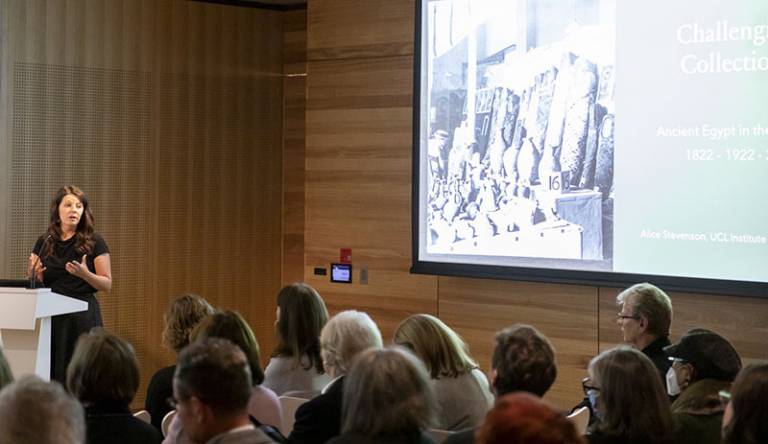 Dr Alice Stevenson giving the 2022 Charles Nicholson Lecture at the University of Sydney |
The AHRC-funded project ‘Egypt’s Dispersed Heritage: views from Egypt’, led at UCL by Alice Stevenson, partnered with five UK museums and archives to communicate this history of dispersal and create opportunities for dialogue with modern Egyptian communities using cultural reference points and modes of communication of relevance to those groups.
This was achieved through a programme of interventions delivered between 2020 and 2022, co-designed, developed, and delivered with them, including street performances, comic strips, and educational resources all in Egyptian Arabic.
Keywords: Museums, decolonization, comics, histories of collection, community engagement
 Close
Close

